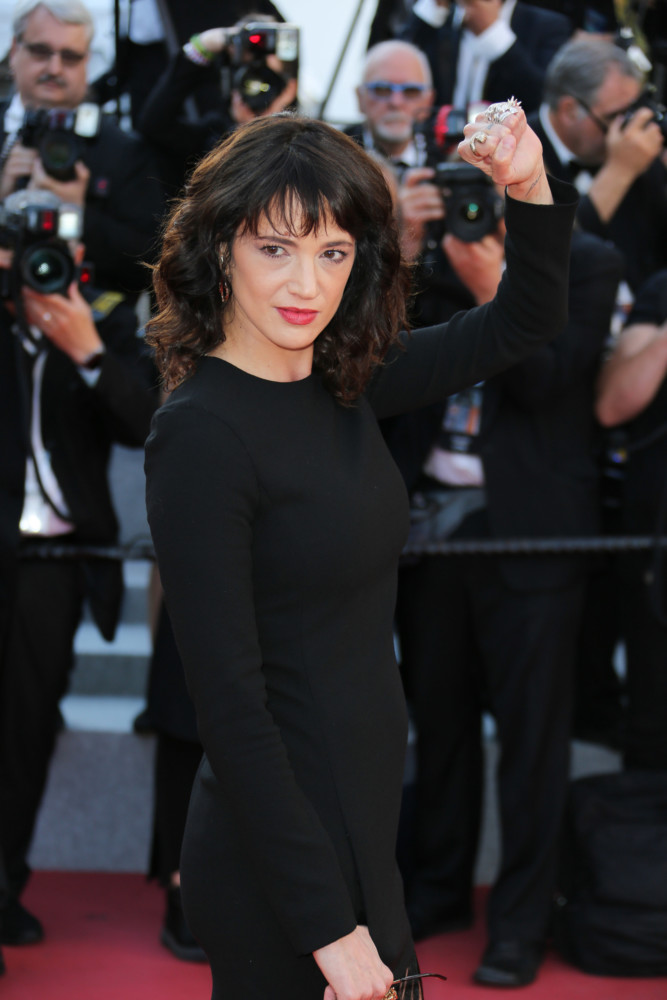By Peter Sblendorio
New York Daily News
WWR Article Summary (tl;dr) Sarah Lowe, an assistant professor of psychology at Montclair State University says Argento’s complicated situation shouldn’t damage the #MeToo movement as a whole.
New York Daily News
Asia Argento’s settlement of a sexual assault lawsuit should not diminish the strides made by the #MeToo movement, leading psychology experts say.
Argento, who’s been at the forefront of the movement since she came forward last October to accuse Harvey Weinstein of rape, recently reached a $380,000 settlement with her former co-star Jimm Bennett, who claimed she sexually assaulted him when he was a minor, The New York Times reported Sunday.
But Argento’s complicated situation shouldn’t damage the #MeToo movement as a whole, says Sarah Lowe, an assistant professor of psychology at Montclair State University with an expertise on the long-term psychological impact of traumatic events.
“She’s certainly not the only prominent person in the movement,” Lowe told the Daily News. “This does not negate the fact that sexual assault is a problem. I think it just complicates it by showing that sometimes the victims of sexual assault can also be the perpetrators. But it’s wrong regardless.”
Argento, 42, was among the initial wave of actresses who shared their allegations against Weinstein in an expose published last fall by The New Yorker. The Italian actress claimed Weinstein assaulted her in 1997, when she was 21.
Bennett, meanwhile, claims Argento assaulted him in 2013, two months after he turned 17. They had starred together in a movie, “The Heart is Deceitful,” nine years earlier and had reportedly reunited at her Ritz-Carlton hotel room when the alleged assault took place.
Lowe notes Argento’s alleged misconduct sheds light on a troubling power dynamic that sometimes exists in sexual encounters.
“When she was a victim of assault, she was much younger and in a pretty powerless position with her perpetrator, where as in this case she was older. … In (this new) case, despite her being a woman, because of her age and her status at the time, she was in a position of power,” Lowe says.
Kimberly Fairchild, an associate professor of psychology at Manhattan College who has studied harassment extensively, agreed that the newly unveiled claims against Argento shouldn’t damage #MeToo and said it highlights the idea that sexual harassment is “really about power.”
There have been a number of instances, Fairchild explains, where a person who experiences a form of abuse goes on to commit abuse themselves in the future, be it sexual in nature or not.
“A culture of violence sort of teaches you that that’s the acceptable way to handle things,” Fairchild told The News. “That’s kind of in some ways what we see in our culture at large for men growing up in this culture, where men are more powerful, and they see powerful men basically harassing and taking advantage of women and see that as an acceptable type of behavior.
“It can easily be transferred to if a woman is in a more powerful position. She sees that people in power do certain things, so she may also follow,” she explained. “Not necessarily going to do harassment things, but the potential is there because it’s a feature of being in power.”
Argento’s reported misconduct garnered a significant reaction on social media, with Rose McGowan, who has also accused Weinstein of rape, tweeting Monday that her “heart is broken” over the situation and that she’ll continue her “work on behalf of victims everywhere.”
“None of us know the truth of the situation and I’m sure more will be revealed,” McGowan wrote in a subsequent tweet. “Be gentle.”
The actresses had gotten to know each other since they came forward with their allegations last year, and McGowan penned a letter in June urging people not to blame Argento in the suicide of her boyfriend, Anthony Bourdain.
Actress Amber Tamblyn, meanwhile, seemed to weigh in by tweeting about a book she published in June.
“Some first dismissed my novel, Any Man, in which a female rapist attacks men, one of which is a teenage boy. A woman from Bustle said, “Do we need this book?” Yes. We do,” she wrote. “There can be no conclusive change unless we do the inclusive work. Protect ALL bodies. Not just your own.”
Argento has not spoken out about The New York Times report.
“Certainly this is a situation that creates an opening for those critics, but it’s not something that makes the movement obsolete or unnecessary,” Fairchild said. “In some ways it suggests that the movement should be a little bit more open to any individuals who experience harassment or assault from someone who is more powerful than them.”














































































































































































































































































































































































